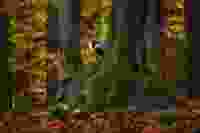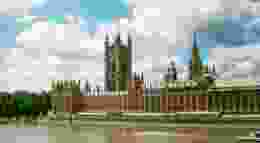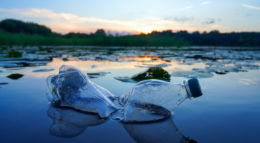
Britain's nature and wildlife deserve our protection and attention
I went on my first birdwatching trip at only nine days old, and have been blogging about the natural world since the age of 11. My Charity Black2Nature organises camps and trips out into nature, and these have demonstrated to me repeatedly how supporting people with access to experience nature and learn about the natural world can transform their lives for the better.
For years now, we've been working hard to secure better access to nature for Visible Minority Ethnic (VME) families, children and communities - who too often have felt it simply isn't a space for them. For a variety of reasons, ethnic minorities have on average 11 times less access to greenspace than others in society - and this has limited opportunities for many to get up close with wildlife and nature. Thankfully, the results of our work have been extraordinary.
Our successes have strengthened my resolve that everyone has a right to experience nature. Whether it's a short walk, a camping trip, or spending time observing a favourite wild animal, these are opportunities that offer enjoyment - while being invaluable for somebody's mental, physical and social wellbeing.
And that's why it is heartening to see the public's appetite for caring for wildlife potentially growing. The RSPCA's new Animal Kindness Index has found, for the first time, protecting wildlife was the main issue the public felt the charity should be dealing with - a view shared by the majority of the population regardless of ethnicity. Given the RSPCA's work with cats and dogs is arguably best known, this marks a notable shift.
RSPCA frontline staff have been rising to the challenge. Last year, a whopping 10,209 wild animals were admitted to the charity’s wildlife centres - an increase of 35% in just one year. But these rises aren’t sustainable, and they need the public’s help. The benefits of understanding nature and wildlife isn't just good for humans. Wildlife needs everybody’s support - and more than ever.
RSPCA frontline staff have been rising to the challenge. Last year, a whopping 10,209 wild animals were admitted to the charity’s wildlife centres - an increase of 35% in just one year. But these rises aren’t sustainable, and they need the public’s help. The benefits of understanding nature and wildlife isn't just good for humans. Wildlife needs everybody’s support - and more than ever.

Whether it is climate change, habitat and biodiversity loss, wildlife crime, or pollution, British wildlife faces real challenges that should be everyone's responsibility. Many household names in the bird world - like the house sparrow and song thrush - have been in significant decline. Gloomy predictions have suggested as many as one in six species of wildlife could be lost from Great Britain. Remarkably, more than 40,000 incidents relating to wild animals in need were reported to the RSPCA in 2024. This grim situation means it is more important than ever that we seek a relationship and kinship with nature across the nation, in every community, as to feel a responsibility towards it and to help protect wildlife.
It is great news that more people are taking the nations wildlife seriously but, despite this, many still admit they would not know what to do if confronted with an injured wild animal. More than half of people admit not feeling confident knowing what to do if they came across sick, trapped or injured wildlife - and those from VME communities, who Black2Nature seeks to represent, were even less confident. So while people are perhaps prioritising wildlife more than before, they also don't necessarily know how to help if they come across animals in need.
That's why the RSPCA's work to empower the public is so important - and something everyone should seek to engage with.
New accessible video content from the charity is offering nature lovers a step by step guide to know what to do if they come across a sick or injured wild animal - and get them the help they need. It’s their latest resource to equip the wider public with the skills they need to support their efforts to make this country a kinder place for all animals. These online guides not only show people how to help wildlife, but encourage everyone to build their own animal rescue kit - to keep in the boot of the car, next to the spare tyre and jumper cables! Those taking the plunge can even pick up a ‘Local Animal Hero’ badge, and crucially will help form an army for nature equipped with the know-how to give wildlife the protection and nature it deserves from all of us.

Dr Mya-Rose Craig is a British-Bangladeshi ornithologist, author and campaigner. She is the founder of Black2Nature, and works closely with the RSPCA, supporting their public empowerment work around wildlife, and promoting their Animal Kindness Index.














